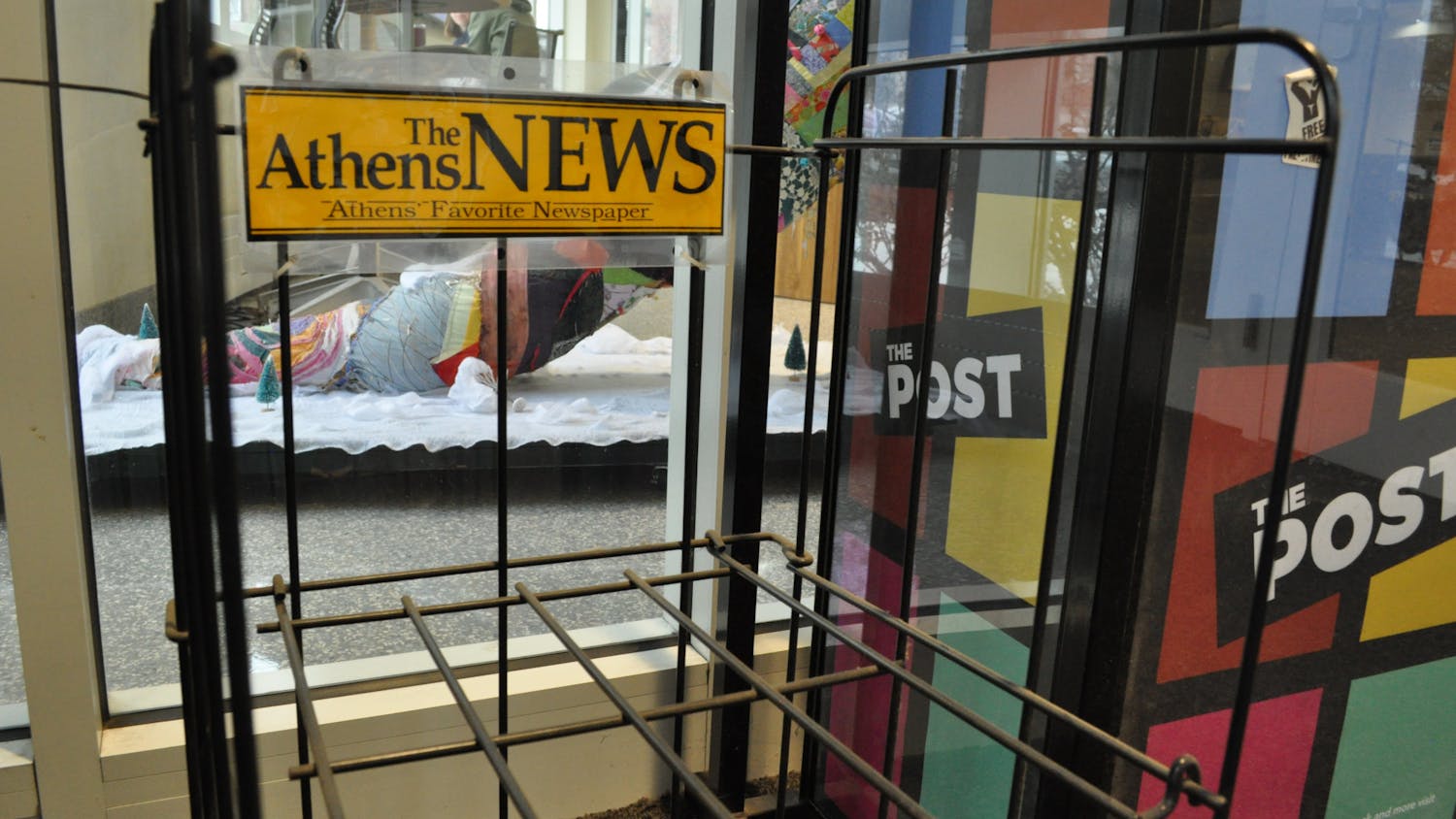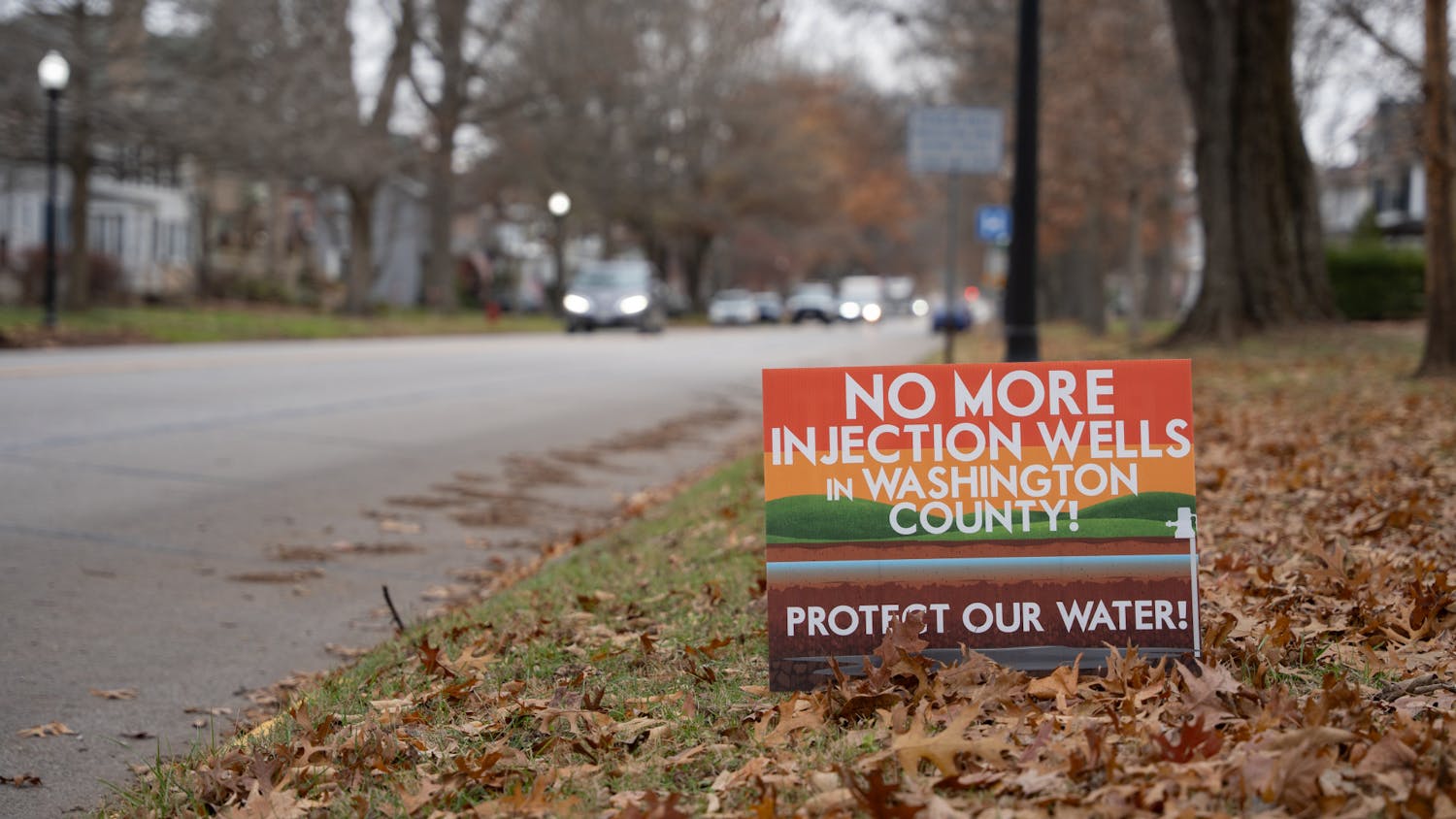Columbus mayor’s five-year sustainability plan pushing away from dependence on single-use bags
Plastic bags have a way of catching the wind and finding their way into the topmost tree branches or sticky sewer grates — a problem Columbus Mayor Michael B. Coleman wants to eradicate with a ban on plastic bags.
Athens officials have suggested a tax on plastic bags, but it’s not currently under consideration.
Coleman’s plan would eventually cut 238 pounds of trash per road mile and reduce city resident roadside trash bins from 96 to 64 gallons.
“The mayor doesn’t want to do anything rash – he is looking to have conversations with residents and grocers before moving forward with a decision,” said Erin Miller, environmental steward for Coleman. “We hope to have something in place for our residents within the next five years.”
Athens City Councilwoman Jennifer Cochran, D-at large, has proposed a plastic bag tax at previous council meetings, but the city hasn’t “really put it out to polling,” said Athens Mayor Paul Wiehl.
“It’s not an impossible dream,” Wiehl said. “Once you get the legislation, then you figure out what’s wrong with it.”
Jonathan Kissell, spokesman for Rumpke Recycling in Columbus, called recycling plastic bags one of the “biggest nuisances in waste management.”
“The bags can get wrapped around our machinery and clog up the system and cause extensive damage to the equipment over time,” Kissell said. “In order for them to be effectively recycled they need to be clean, dry and free of food, and they rarely come to us in that form.”
About 4 to 9 percent of plastic bags distributed in stores in the past 15 years were recycled, said Elissa Yoder, conservation coordinator for the Sierra Club Ohio chapter.
“We’re trying to change the plastic bag mindset altogether,” Yoder said.
Although customers in Kroger’s Columbus division, which includes the Kroger on East State Street, recycled 50.3 percent of bags in-store last year, adding that the division would welcome sustainability-based bag ordinances, said Jennifer Jarrell, spokeswoman for the Columbus Kroger division.
“Kroger is concerned that implementing a policy that just covers the city of Columbus would confuse our customers who cross-shop our stores,” Jarrell said. “We would rather see a large-spectrum change as opposed to individual cities and counties creating separate ordinances.”
Andrew Ladd, Recycling and Refuge manager at Ohio University, said that even though plastic bag recycling bins are placed outside every grab and go, an estimated 30 percent of campus single-use bags are currently recovered for recycling.
“I don’t think I would mind a bag tax too much,” said Hannah Shook, frequent customer of the Athens Kroger. “I think they’re wasteful, and those recycle programs at the front of the store are cool. I prefer a paper bag, honestly.”
Yoder said conversations in Columbus are leaning toward a 10-cent bag tax.
“I think the experience has been (plastic bag bans have) minimal economic impact and encourage behavior change in bringing bags for grocery shopping,” said Geoffery Dabelko, director of environmental studies at OU’s Voinovich School of Leadership and Public Affairs. “And the solid waste challenges presented by the bags not degrading, particularly in clogging waterways, are also well established in very diverse settings.”
Columbus’ ban, if approved, would take six months to roll out.
@MCTilton
mt522913@ohio.edu






